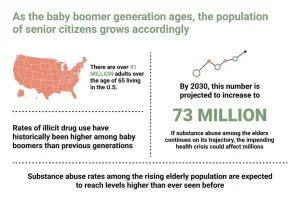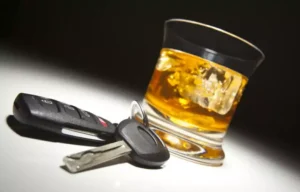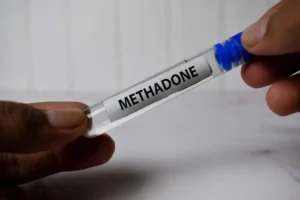
You’ve probably noticed (or observed) that you say and do things when you’re drinking that you wouldn’t normally say or do. While definitions can be variable, one way to look at this is the consumption of 4 or more drinks on an occasion (for women) and 5 or more for men. Additionally, alcoholism and anger excess alcohol is defined as drinking more than 8 drinks a week (women) and 15 a week (men), or consuming alcohol if you are pregnant or younger than age 21. When people talk about drinking “alcohol,” they’re almost always referring to the consumption of ethanol.
Clarifying the distinctions between these emotional responses
When you drink alcohol, you behave impulsively, which can affect your decision-making abilities. When you are drunk, most things will cloud you, and you will not be able to perceive situations correctly. Dr. Carlos Todd PhD LCMHC specializes in anger management, family conflict resolution, marital and premarital conflict resolution. His extensive knowledge in the field of anger management may enable you to use his tested methods to deal with your anger issues.

Alcohol and Anger Management
She has spent the past 5 years specializing in the treatment of opioid and alcohol use disorders. Men are more at risk of having anger issues due to the overuse of alcohol. The probable reason for this is genetic factors and an increased tendency towards substance use. Moreover, alcohol-related anger is more common in young and single males than married and old ones. Before exploring the common emotional experiences while drinking, it’s essential to understand how anger and alcohol perception are intertwined.

Treatment for Anger and Alcoholism at Serenity Lane
In the first, six alcohol- or other drug-involved patients with a history of anger and violence received 12 stress inoculation-like sessions of cognitive, relaxation, and behavioral coping skills training focusing upon anger management (Awalt, Reilly, & Shopshire, 1997). The third study, Lin, Mack, Krahn and Baskin (2004) compared seven substance dependence clients who completed 12 sessions of Forgiveness Therapy (targeting anger, anxiety and depression) with seven clients who completed 12 sessions of standard alcohol and drug counseling. At posttreatment, those clients completing the Forgiveness Therapy sessions reported greater improvements in composite anger and anxiety relative to those clients completing the alcohol and drug counselling sessions. Clients receiving the anger and aggression focused cognitive-behavioral group therapy reported significantly less alcohol use during the 12 weeks of treatment relative to the comparison group. Although these initial studies each have methodological limitations, they provide early support for anger-based interventions in substance abusing populations.
Moreover, CBT interventions encompass assertiveness training and interpersonal skills development, empowering individuals to communicate their needs and boundaries effectively while navigating challenging situations. By employing these de-escalation strategies and prioritizing safety and well-being, we can effectively manage anger in intoxicated individuals and work towards a peaceful resolution of conflicts. Offering reassurance and support can help alleviate feelings of distress and frustration. Letting the individual know they are heard and understood can de-escalate tension and foster a sense of trust and cooperation.
Understanding these effects highlight the mechanisms through which alcohol can fuel anger and aggression, helping you the importance of mindful consumption and proactive strategies for managing emotions in alcohol-related contexts. The frontal lobe’s impairment under the influence of alcohol can result in diminished emotional regulation, making individuals more prone to experiencing heightened anger. Alcohol has been shown https://ecosoberhouse.com/ to intensify feelings of anger and aggression in many individuals. This link is miscellaneous, involving both physiological and psychological factors. Beyond its physiological effects, the association between alcohol and anger can affect the mental health of an individual. As a depressant, alcohol slows central nervous system activity, limiting inhibitions and promoting impulsive behaviors – including anger issues.

- Inhibiting factors set the threshold beyond which aggressive urges would result in aggression.
- In other words, can we make our inner “Tammy” or “Jimmy” (or whatever name your boozy alter-ego might have) stay away for good?
- But as you continue to drink, you become drowsy and have less control over your actions.
Section 1.1 outlined a number of direct and indirect mechanisms that describe how anger and related emotions may be related to alcohol consumption and relapse after alcohol dependence treatment. Initial support for alcohol-adapted anger management treatment suggests that clinicians and researchers may have an additional intervention to address anger-alcohol associations. Clinically, not all alcohol-involved clients accept the philosophies and approaches of AA and other mutual-help groups. AM may be a particularly relevant tool for such anger- and alcohol-involved clients. Also, it may be important to consider alcohol-adapted anger management treatment primarily for combined anger- and alcohol-involved clients, as these were the clients eligible for the present study. In spite of the theoretical and empirical associations between anger, drinking and AUDs, our review revealed only four studies evaluating anger-specific treatment in alcohol and substance treatment.

If you feel that you sometimes drink too much alcohol, or your drinking is causing problems, or if your family is concerned about your drinking, talk with your health care provider. Other ways to get help include talking with a mental health professional or seeking help from a support group such as Alcoholics Anonymous or a similar type of self-help group. Unhealthy alcohol use includes any alcohol use that puts your health or safety at risk or causes other alcohol-related problems. It also includes binge drinking — a pattern of drinking where a male has five or more drinks within two hours or a female has at least four drinks within two hours. Finding wellness through treatment at Serenity Lane doesn’t just mean finding recovery from AUD. It means identifying your triggers for anger and finding out why you’re self-medicating with alcohol.
The Failure to Consider Future Consequences and Its Impact on Aggression
- More recently, a significant, small effect size was reported for the association between alcohol intake and aggression in female subjects who consumed alcohol compared to those who did not drink, in response to a subsequent aggression paradigm (Crane et al., 2017).
- Many people who have an alternate personality when they drink look back on it clarity when they sober up.
- Time after treatment (months 1 through 6) was modeled as a continuous variable.
- In a British prison sample, over a third of male homicide offenders had consumed alcohol and were considered drunk at the time of the offense and 14.0% had been using drugs (Dobash and Dobash, 2011).
If that’s something you feel you’re unable to do, we can support you with other methods of treatment. High amounts of alcohol use are causal risk factors in the development of disease in the heart, liver, pancreas, and brain (including the brains of children in utero). When it comes to adults, excessive alcohol use can cause multiple well-defined brain issues ranging from short-term confusion to dementia. Several studies have revealed that prolonged anger is one of the risk factors for many physiological problems, such as myocardial infarction (heart attack), stroke, myopia, and hypertension (increased blood pressure).